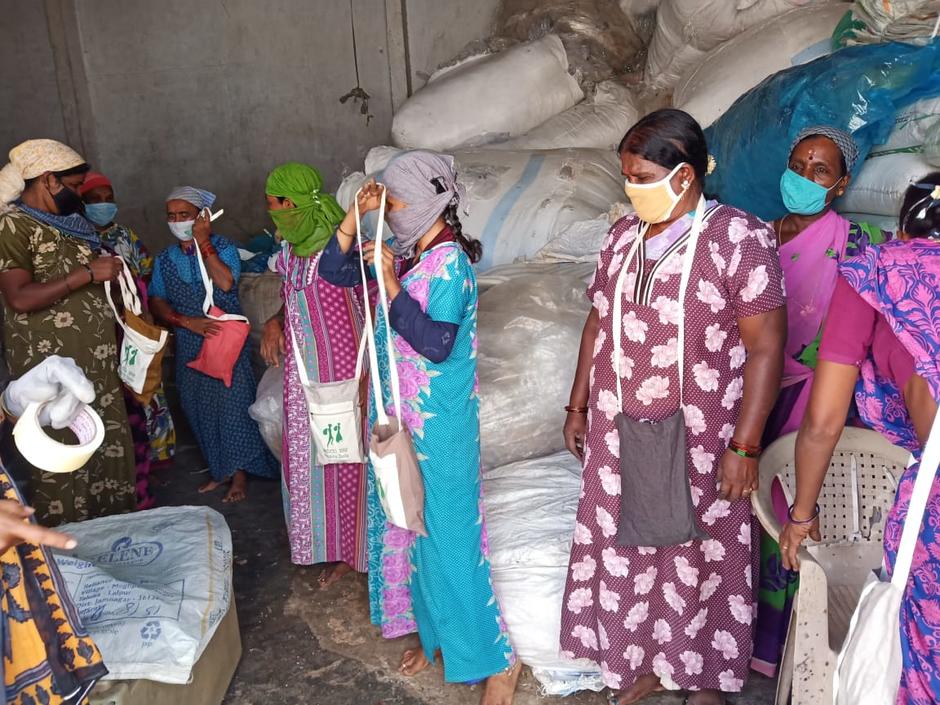
Social & Employment
- Location:
Bengalore (India) - Sponsor:
Sheilaja Singh - Grant:
€6,000 on 08/07/2020
Project owner
Its waste collection activity dates back to the beginning of 2010. Hasiru Dala, is a registered Charitable Trust that began in the city of Bangalore before expanding beyond its borders to southern India in the neighbouring cities of Mysuru, Chamarajanagar and Tumakuru, as well as to the surrounding regions of Tamil Nadu and Andhra Pradesh.
It works in various areas of activity: not only the characterization and overall defence of waste collection as an activity, skills development, market organization and access to employment, but also education, health, housing, retirement, etc. Its principle is based on these collectors’ inclusion in society, whether they are formally identified as such or pursue this line of work in a more informal manner.
Help in many forms
Hasiru Dala estimates the number of collectors it is championing at between 25,000 and 35,000. To help them, it organizes monthly meetings to raise their awareness and inform them about social welfare provisions and means of subsistence; it has set up a community library to provide better education for children; it has created the annual "Hasiru Habba" waste collection day; it helps set up medical centres, etc.
Its latest project concerns structuring the waste management sector. Hasiru Dala wants to create "aggregation centres" dedicated to waste storage and management. They will also ensure the distribution of protection and hygiene equipment for the collectors.
The project has gathered pace with the emergence of the Covid-19: the pandemic has had a major impact on economic channels such as recycling. Waste collectors no longer have the opportunity to sell their waste as they used to do, making their situation even more precarious.
A first centre before being disseminated
The "aggregation centres" allow all the collectors to find a place in the sector. The idea is that Hasiru Dala will supervise the first structure to be opened before, within 18 months, it becomes a cooperative. Certain collectors could take on responsibilities at the heart of their sector by managing these centres, a necessary step in the supply and treatment chain. The recycling sector will become more stable and the quality of life for informal workers improve.
Hasiru Dala will lease the centre for one year, while waiting for the local government to provide land or buildings. As for the machinery, such as a baler and the grinder/shredder, it will be installed by Hasiru Dala, which will also provide the collectors with health and safety equipment. This first centre is an opportunity to become familiar with the standards that will be put in place and train the workers. The model could then be reproduced elsewhere.

